7 Health Benefits Of Butternut Squash, Nutrition, & Recipes
Boost your eye, bone, and heart health with this delicious vegetable!
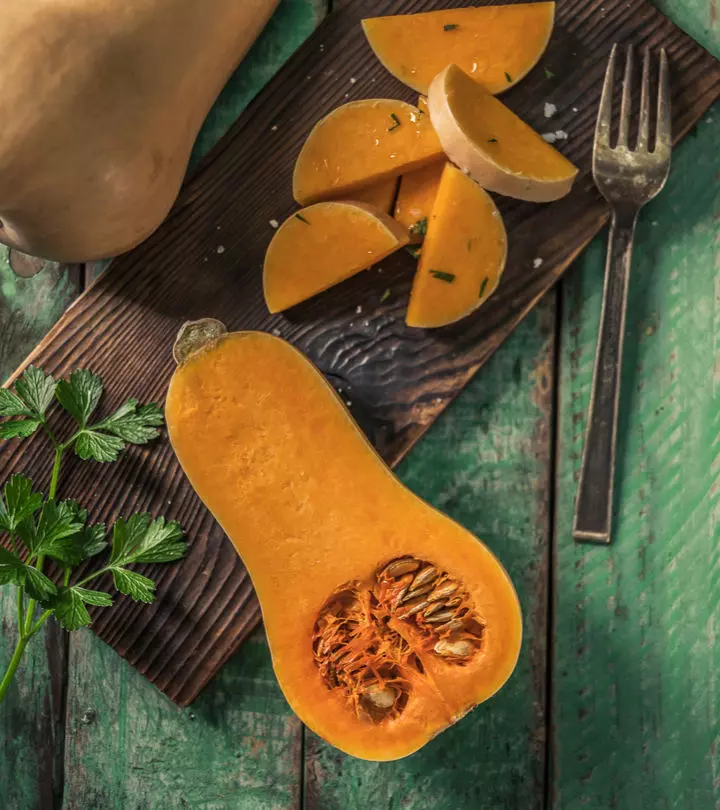
Image: Shutterstock
Butternut squash (Cucurbita moschata) resembles a long, elongated pear. Butternut squash benefits extend beyond being a tasty alternative to starchy potatoes. This orange-fleshed winter squash is loaded with carbs. There are many phytochemicals, antioxidants, and carotenoids in this food. These compounds contribute to its many health benefits.
Winter squash may help reduce cancer risk, promote weight loss, and improve eye and bone health. Butternut squash is versatile and tastes delicious in both sweet and savory dishes. It makes for a perfect side dish, has a sweet and nutty taste, and is technically a fruit.
 Trivia
TriviaThis article examines butternut squash’s health benefits, nutritional profile, recipes, and risks. Read on to learn more.
In This Article
Butternut Squash Nutrition Facts
According to the U.S. Department of Agriculture, one cup (205 grams) of cooked butternut squash contains:
- Calories: 82
- Protein: 1.84 g
- Fat: 0.184 g
- Carbohydrate: 21.5 g
- Fiber: 6.56 g
- Sugars: 4.04 g
- Calcium: 84 mg
- Iron: 1.23 mg
- Magnesium: 59.4 mg
- Potassium: 582 mg
- Vitamin C: 31 mg
- Vitamin A: 1140 µg
- Thiamin: 0.148 mg
- Folate: 39 µg
 Did You Know?
Did You Know?Butternut squash also contains copper, zinc, manganese, and phosphorus in trace amounts. This annual vegetable has many medicinal properties and offers important health benefits. Let us explore them in the next section.
Key Takeaways
- Butternut squash is an orange-fleshed winter squash that looks similar to an elongated pear.
- It is a delicious alternative to starchy potatoes and works well in both sweet and savory dishes.
- It is a great source of carbohydrates, phytochemicals, antioxidants, and carotenoids that are beneficial to your health.
- Several studies have shown that butternut squash can reduce cancer risk, aid weight loss, and promote bone and eye health.
Health Benefits Of Butternut Squash
1. May Reduce Cancer Risk
Butternut squash is rich in beta-carotene and antioxidants that may help prevent certain cancers. A study conducted by the Epidemiology Research Unit, Quebec, found that foods rich in carotenoids may protect against colon cancer. As per another study, intake of vitamin A and beta-carotene can help reduce lung cancer risk. The phenolic compounds in the squash encourage cell communication and prevent cancer cell growth. The high fiber content of this vegetable may inhibit cell proliferation in the case of colorectal cancer.
2. May Help Prevent Heart Disease
The carotenoids in butternut squash may help improve heart health. A study conducted by the University of Kuopio found that consumption of foods rich in carotenoids may help prevent cardiovascular disease. However, carotenoids in pharmaceutical forms are not yet recommended for preventing heart disease. More studies are needed to understand this phenomenon of butternut squash in humans.
3. May Aid In weight loss
Butternut squash is high in fiber. Increased fiber intake may help reduce weight. A study conducted by the Brigham Young University College Of Health and Human Performance, USA, on 252 women found that fiber consumption may significantly reduce the risk of weight gain. In another study, dietary fiber consumption could reduce the risk of weight gain in African-American women.
4. May Improve Eye Health
Butternut squash is rich in vitamin A that is essential for maintaining eye health. A study conducted by the University of Bordeaux, France, found that intake of foods rich in vitamin A and its metabolites may help promote vision. This fat-soluble vitamin can absorb light and support the functioning of the cornea. However, more studies are warranted to further understand this benefit of butternut squash.
5. May Support Immune Function
As per one mice study, the beta-carotene in butternut squash may help enhance immune system health. The polysaccharides in butternut squash are said to possess immune-stimulating properties. The vitamin A and vitamin C in the veggie may help reduce the risk of certain infections like pneumonia.
6. May Boost Bone Health
Foods rich in beta-carotene, vitamins A and C, and minerals like zinc may help improve bone health. A study on postmenopausal women found that dietary intake of foods rich in these nutrients significantly improved bone mineral density. The vitamin C in butternut squash may also lower osteoporosis risk by 33%. Its manganese content also helps boost bone mineral density and bone formation.
7. May Improve Digestion
The dietary fiber in butternut squash plays a key role in promoting digestion. It also may help treat related issues like constipation and bloating. It may stimulate bowel movements and also reduce colon inflammation. A review published in the World Journal of Gastroenterology suggests that dietary fiber intake increases stool frequency in patients with constipation.
The high potassium values in butternut squash may help lower blood pressure. The beta-carotene in the vegetable may fight against the harmful effects of UV radiation. However, information in this regard is very limited and more research is warranted.
The nutrient profile of butternut squash aligns well with the broader benefits of squash, supporting heart health and immunity, among other things. This knowledge can help you make informed dietary choices.
These are the health benefits of butternut squash. But how do you add this veggie to your diet? Read on to know.
How To Add Butternut Squash To Your Diet?
Here are a few ways to include butternut squash in your food:
- You can add butternut squash in the place of sweet potatoes, pumpkin, or any other starchy veggies.
- Top your salad with roasted butternut squash.
- Try butternut squash in the place of potatoes in curries or fries.
- Prepare creamy soup with butternut squash puree and coconut milk.
- Add roasted butternut squashes to boiled eggs in your breakfast.
- Add cooked butternut squash to your pasta.
- Try pureed butternut squash with your favorite bread slices.
- Prepare a quick side dish with butternut squash by roasting this vegetable with olive oil, pepper, and salt.
- Stuff-cook butternut squash with your favorite mixture of grains or vegetables.
 Fun Fact
Fun FactFind out some easy recipes with butternut squash in the following section.
3 Delicious Recipes You Can Enjoy
1. Bacon Butternut Squash Pasta (Serves 2 to 3)
What You Need
- Butternut squash – 1 large
- Sausage – 1 lb.
- Minced garlic – 2 cloves
- Bucatini – 1 lb.
- Shaved parmesan – ¼ cup
- Freshly chopped thyme – 2 teaspoons
- Butter – ½ cup
- Freshly chopped sage – 1 tablespoon
- Extra-virgin olive oil, divided kosher salt, and freshly ground black pepper – 3 tablespoons
Process
- Preheat the oven to 425°F. Cut the squash into ½’’ cubes.
- Toss the squash, red onion, and two tablespoons of oil in a large bowl.
- Divide between two large baking sheets and season with salt and pepper.
- Roast until fork-tender and golden, for 30 minutes, tossing halfway through.
- Cook pasta in a large pot of boiling salted water.
- Reserve ½ a cup of pasta water and drain.
- Heat the remaining one tablespoon of oil in a large skillet over medium heat.
- Add sausage and cook, breaking meat up finely with a wooden spoon, until golden and crisp, for about 10 minutes.
- Remove from the skillet and place it on a plate to keep warm.
- Return the skillet to heat and add butter. Cook butter until foamy, then reduce heat to medium-low and stir until butter starts to smell nutty and turns a deep golden, for about 4 minutes.
- Add garlic, sage, and thyme. Cook until fragrant, for a minute, and remove pan from heat.
- Add bucatini, sausage, squash, and ¼ cup of reserved pasta water to skillet and toss to combine.
- Add more pasta water to help the sauce come together as necessary.
- Top with shaved parmesan before serving.
2. Crispy Butternut Squash Spinach Salad (Serves 4)
What You Need
- Peeled butternut squash – 1 (small)
- Minced shallot – 1
- Bacon – 6 slices
- Brown sugar – 1 tablespoon
- Red wine vinegar – ¼ cup
- Toasted and chopped pecans – ½ cup
- Baby spinach – 5 oz. (6 cups)
- Extra-virgin olive oil, divided kosher salt, and freshly ground black pepper – 1 tablespoon each
Process
- Preheat the oven to 425°F and line a baking sheet with aluminum foil.
- Arrange butternut squash on the prepared baking sheet, drizzle with olive oil, and season with salt and pepper.
- Roast until golden brown and crisp, for 20 to 25 minutes.
- Meanwhile, fry bacon over medium heat in a large skillet until crisp, occasionally turning, for about 6 minutes.
- Transfer to a paper towel-lined plate and transfer bacon grease to a small bowl.
- Cook shallot over medium-high in the same skillet. Heat until tender, for about 4 minutes.
- Stir in the red wine vinegar and brown sugar and mix well.
- Whisk in 2 tablespoons of bacon grease and season with salt and pepper.
- Place spinach in a large bowl.
- Add pecans and roasted butternut squash and pour over warm vinaigrette, tossing gently to combine.
- Serve immediately.
3. Roasted Butternut Squash Soup (Serves 4)
What You Need
- Peeled and cubed butternut squash – 1 (large)
- Thinly sliced celery – 1 stalk
- Peeled and chopped potatoes – 2
- Butter – 1 tablespoon
- Chopped onion – 1
- Chopped carrot – 1
- Low-sodium chicken broth – 1 qt.
- Fresh thyme – 1 tablespoon
- Extra-virgin olive oil, divided kosher salt, and freshly ground black pepper – 3 tablespoons each
Process
- Preheat the oven to 400°F. On a large baking sheet, toss butternut squash and potatoes with two tablespoons of olive oil and season generously with salt and pepper.
- Roast until tender, for 25 minutes.
- Meanwhile, melt butter and the remaining tablespoon of olive oil in a large pot over medium heat.
- Add onion, celery, and carrot and cook until softened, for 7 to 10 minutes.
- Season generously with salt, pepper, and thyme.
- Add roasted squash and potatoes and pour the chicken broth.
- Simmer for 10 minutes, and blend soup in an immersion blender until creamy.
- Serve garnished with thyme.
David, a food blogger, explains how he prepared butternut squash soup from roasted butternut squash. He wrote, “To my mind, the pure flavor of butternut squash should come through in this type of soup. I don’t want to have too many other flavors competing with each other (i).”
 Quick Tip
Quick TipThese are some easy recipes of butternut squash you can try. Interestingly, this vegetable is often compared with sweet potato. Which of the two is more nutritious?
Butternut Squash Vs. Sweet Potato
Both butternut squash and sweet potatoes are excellent sources of vitamins and minerals. However, butternut squash has fewer calories than a sweet potato. It also is low in carbs and sugar values per serving than sweet potatoes. While sweet potatoes are richer in protein and fiber, butternut squash is richer in vitamins A, C, and E.
Selection And Storage Of Butternut Squash
Buy fresh and blemish-free butternut squash with stem intact. Select those that are heavy in hand. Avoid squashes with cuts or wrinkled surfaces. Store this vegetable in a cool and dark place. The butternut squash can last for two to three months if stored in the right conditions. If you want to store it in the refrigerator, cut it into pieces and keep them in an air-tight container or plastic bag with zipping. You can also store them in the freezer. Frozen squash can last for six months to one year.
What are the risks associated with butternut squash? Scroll down to know.
Risks Associated With Butternut Squash
Intake of butternut squash is generally considered safe. But anecdotal evidence suggests that it may cause contact dermatitis in some people when they peel or cut this vegetable. Hence, those with this sensitivity should wear gloves while handling butternut squashes. Also, people with kidney problems and those using beta-blockers or ACE inhibitors should avoid eating butternut squash due to its high potassium content. However, more data is needed in this regard.
Butternut squash is an orange-fleshed winter squash with medicinal properties. This annual vegetable contains antioxidants, carotenoids, and phytochemicals. These nutrients are responsible for many benefits of butternut squash. The intake of this vegetable may reduce cancer risk, help prevent heart disease, aid in weight loss, improve eye health, and support immune function. You can add this delicious squash to your diet in many ways. However, some people may experience contact dermatitis when they cut or peel this vegetable. In addition, people with kidney problems should avoid the intake of this vegetable. Hence, include this versatile veggie in your diet to enjoy its benefits.
Frequently Asked Questions
Is butternut squash good for the stomach?
Yes, butternut squash is good for the stomach and gut health. It is loaded with fiber that boosts digestion.
Is butternut squash good for skin?
Yes, butternut squash is good for the skin. It has vitamin A, which can boost skin cell turnover and keep it smooth.
Does butternut squash make you poop?
Yes, butternut squash will make you poop as it has laxative properties.
What happens if you eat too much butternut squash?
Overeating butternut squash is not recommended. High potassium content in it may increase the risk of heart disease. Hence, moderate consumption is advised.
Can diabetics eat butternut squash?
Yes, butternut squash can be a good option for individuals with diabetes when consumed in moderation. The fiber content in butternut squash may help slow down the absorption of sugars, which may contribute to better blood sugar control (21). However, it is important for individuals with diabetes to be mindful of portion sizes and to include butternut squash as part of a well-balanced meal.
Is butternut squash a bad carb?
The carbohydrates in butternut squash come from natural sugars and fiber. While it does have a moderate glycemic index, the presence of fiber in butternut squash may help slow down the digestion and absorption of carbohydrates, which may contribute to better blood sugar control (22).
Butternut squash is one of the superfoods that you should include in your diet. In the following video, a doctor explains the multiple ways in which it supports your overall health and well-being. Check out the video now!
Personal Experience: Source
StyleCraze's articles are interwoven with authentic personal narratives that provide depth and resonance to our content. Below are the sources of the personal accounts referenced in this article.
i. Butternut Squash Souphttps://www.goodthingsbydavid.com/2011/10/butternut-squash-soup.html
References
Articles on StyleCraze are backed by verified information from peer-reviewed and academic research papers, reputed organizations, research institutions, and medical associations to ensure accuracy and relevance. Read our editorial policy to learn more.
- Squash winterbutternut cooked baked without salt
https://fdc.nal.usda.gov/fdc-app.html#/food-details/169296/nutrients - Dietary carotenoids and risk of colon cancer: case-control study
https://pubmed.ncbi.nlm.nih.gov/15054875/ - Association of Dietary Vitamin A and β-Carotene Intake with the Risk of Lung Cancer: A Meta-Analysis of 19 Publications
https://www.ncbi.nlm.nih.gov/pmc/articles/PMC4663591/ - Dietary circulating beta-carotene and risk of all-cause mortality: a meta-analysis from prospective studies
https://pubmed.ncbi.nlm.nih.gov/pmc/articles/PMC4886629/ - Evaluation of bioactivity of butternut squash (Cucurbita moschata D.) seeds and skin
https://www.ncbi.nlm.nih.gov/pmc/articles/PMC7382094/ - Carotenoids and cardiovascular health
https://pubmed.ncbi.nlm.nih.gov/16762935/ - Increasing total fiber intake reduces risk of weight and fat gains in women
https://pubmed.ncbi.nlm.nih.gov/19158230/ - Associations between fiber intake and Body Mass Index (BMI) among African-American women participating in a randomized weight loss and maintenance trial
https://pubmed.ncbi.nlm.nih.gov/29510372/ - Vitamin A endocrine tissues and hormones: interplay and interactions
https://pubmed.ncbi.nlm.nih.gov/28720593/ - Vitamin A
https://ods.od.nih.gov/factsheets/VitaminA-HealthProfessional/ - Cucurbita moschata Duch. and its active component β-carotene effectively promote the immune responses through the activation of splenocytes and macrophages
https://pubmed.ncbi.nlm.nih.gov/27315229/ - Isolation and Biophysical Characterisation of Bioactive Polysaccharides from Cucurbita Moschata (Butternut Squash)
https://www.ncbi.nlm.nih.gov/pmc/articles/PMC7466094/ - Vitamin C supplementation for prevention and treatment of pneumonia
https://pubmed.ncbi.nlm.nih.gov/32337708/ - Relationship between bone mineral density and dietary intake of β-carotene vitamin C zinc and vegetables in postmenopausal Korean women: a cross-sectional study
https://pubmed.ncbi.nlm.nih.gov/27664069/ - Vitamin C intake in relation to bone mineral density and risk of hip fracture and osteoporosis: a systematic review and meta-analysis of observational studies
https://pubmed.ncbi.nlm.nih.gov/29644950/ - Manganese
https://ods.od.nih.gov/factsheets/Manganese-HealthProfessional/ - Effect of dietary fiber on constipation: A meta analysis
https://www.ncbi.nlm.nih.gov/pmc/articles/PMC3544045/ - MODERATE POTASSIUM SUPPLEMENTATION IN ESSENTIAL HYPERTENSION
https://www.sciencedirect.com/science/article/abs/pii/S0140673682906572 - Carotenoids and protection against solar UV radiation
https://pubmed.ncbi.nlm.nih.gov/12239422/ - Potassium: Friend or Foe?
https://www.ncbi.nlm.nih.gov/pmc/articles/PMC5115995/ - Evaluation of bioactivity of butternut squash (Cucurbita moschata D.) seeds and skin
https://www.ncbi.nlm.nih.gov/pmc/articles/PMC7382094/ - Antioxidants and Health-Beneficial Nutrients in Fruits of Eighteen Cucurbita Cultivars: Analysis of Diversity and Dietary Implications
https://www.ncbi.nlm.nih.gov/pmc/articles/PMC7221643/
Read full bio of Dr Archana Batra
Read full bio of Sindhu Koganti
Read full bio of Arshiya Syeda
Read full bio of Himanshi Mahajan








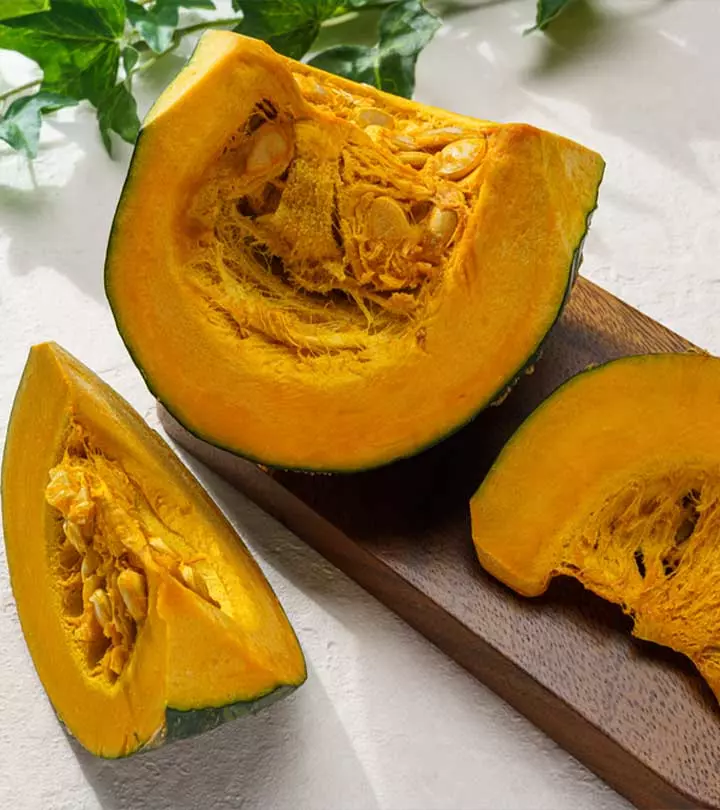
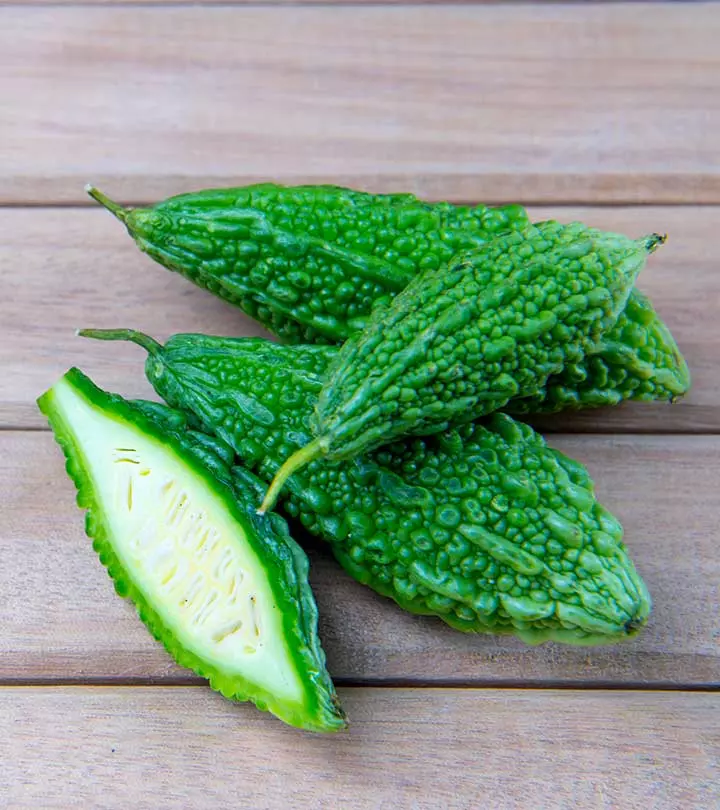
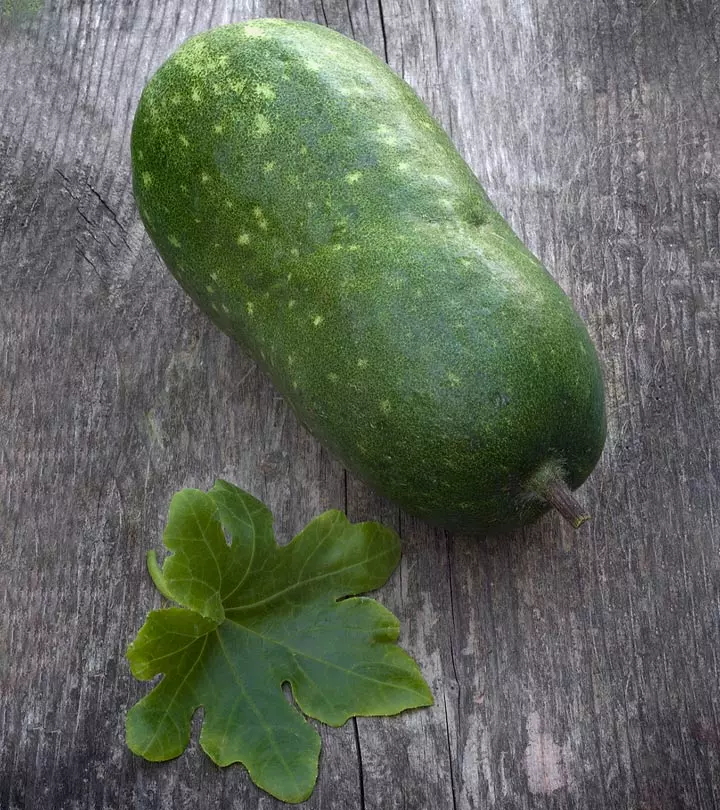
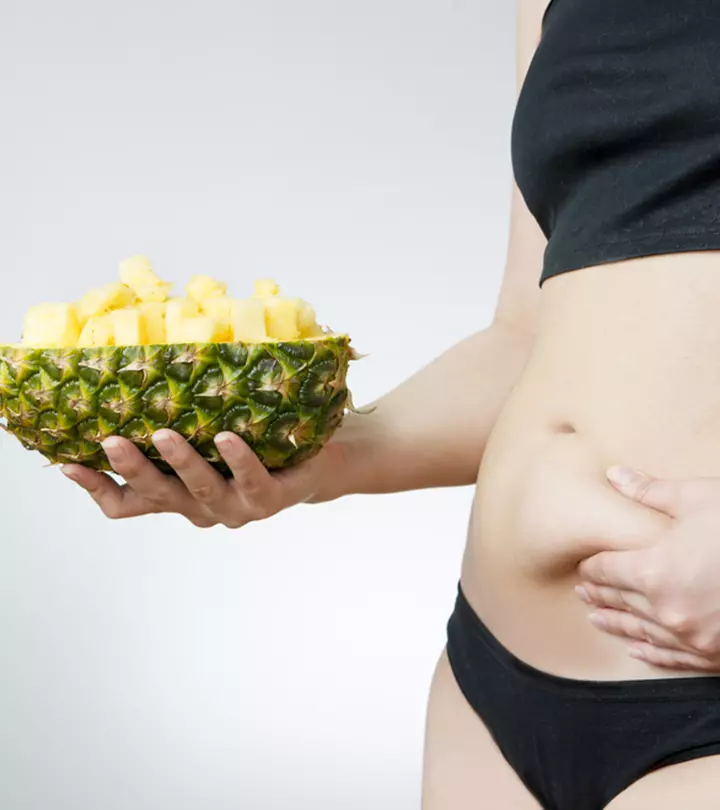
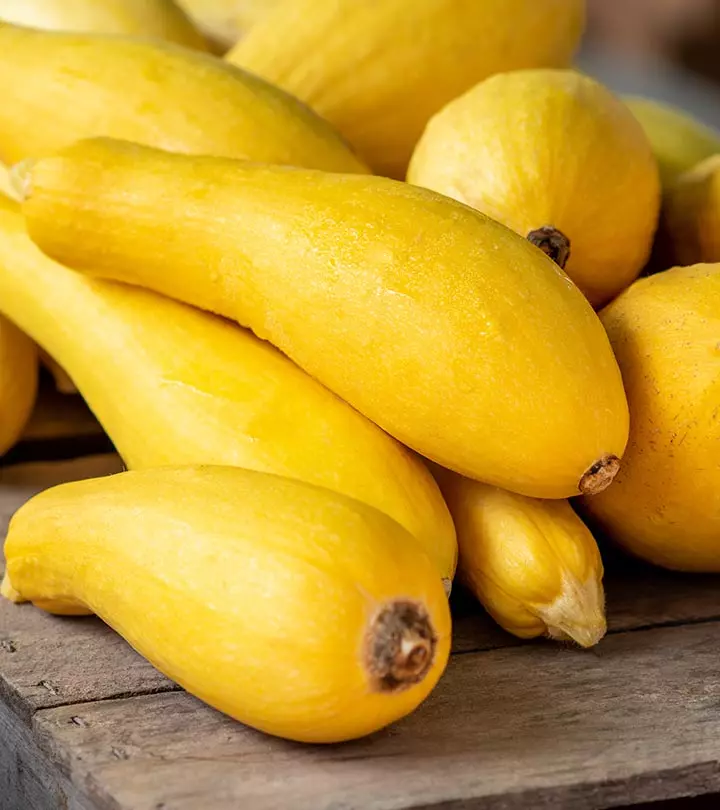

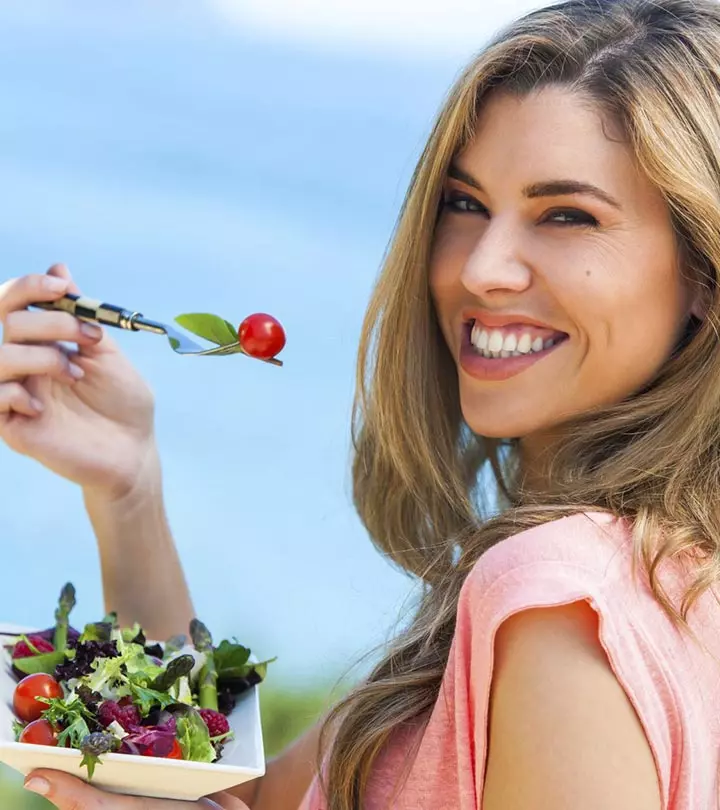
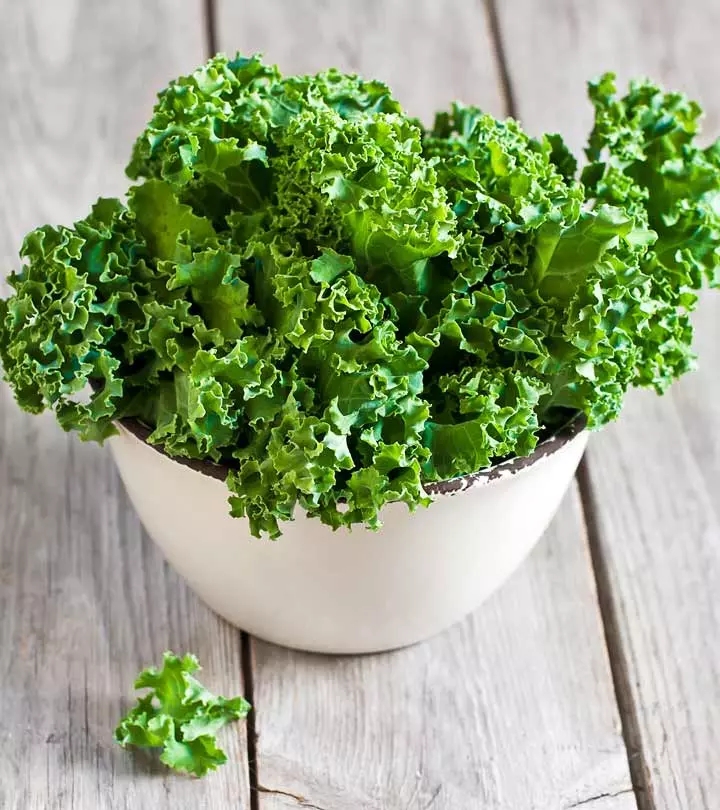

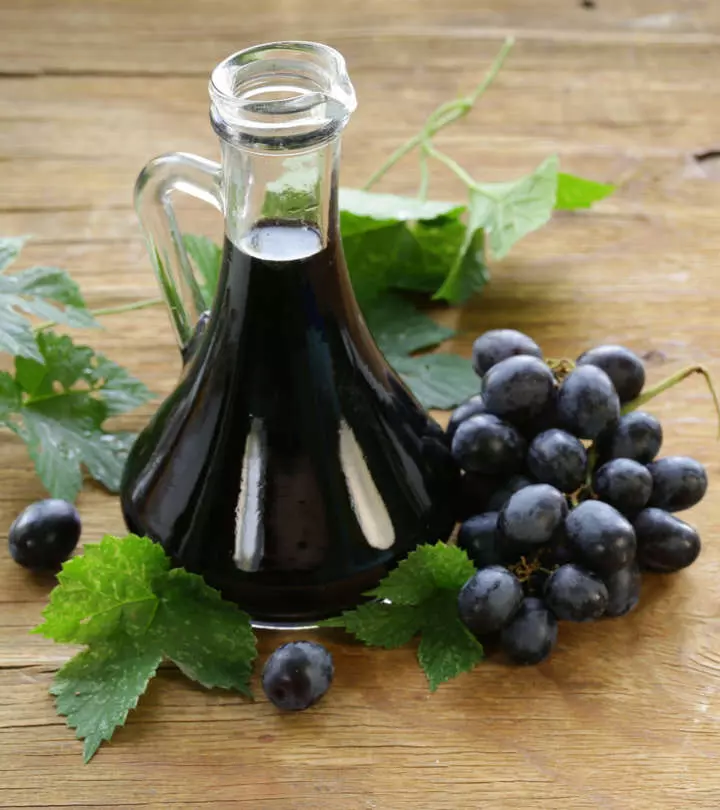
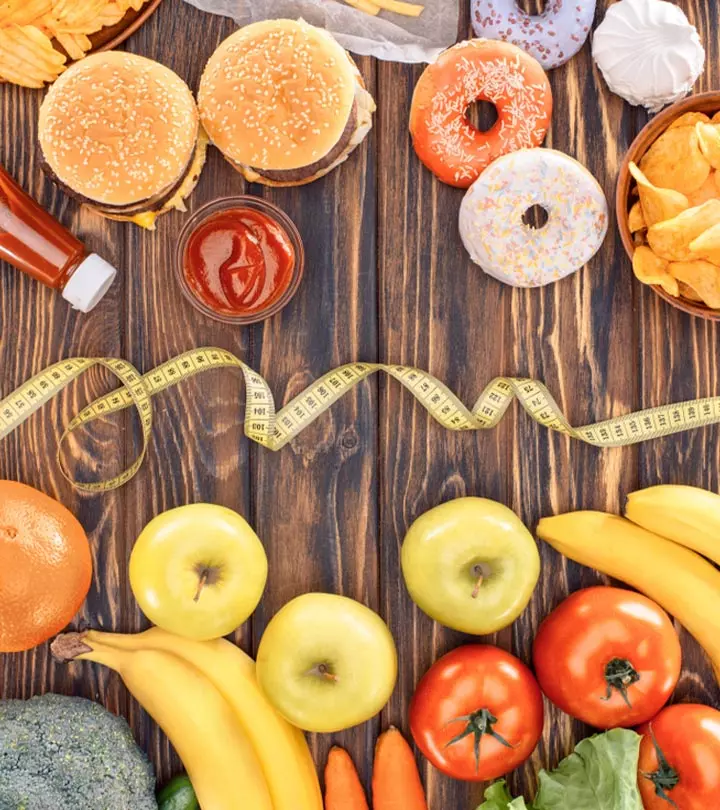
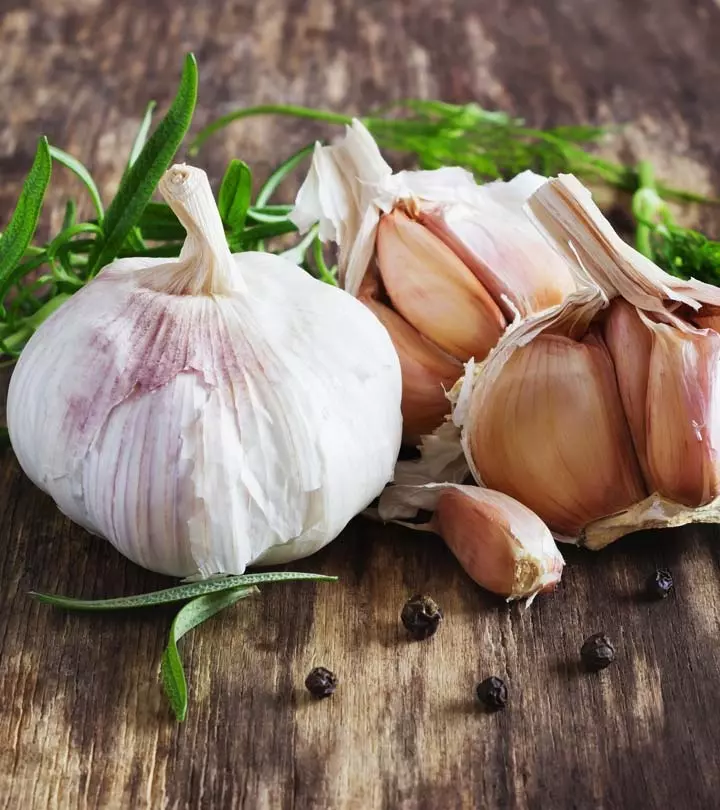
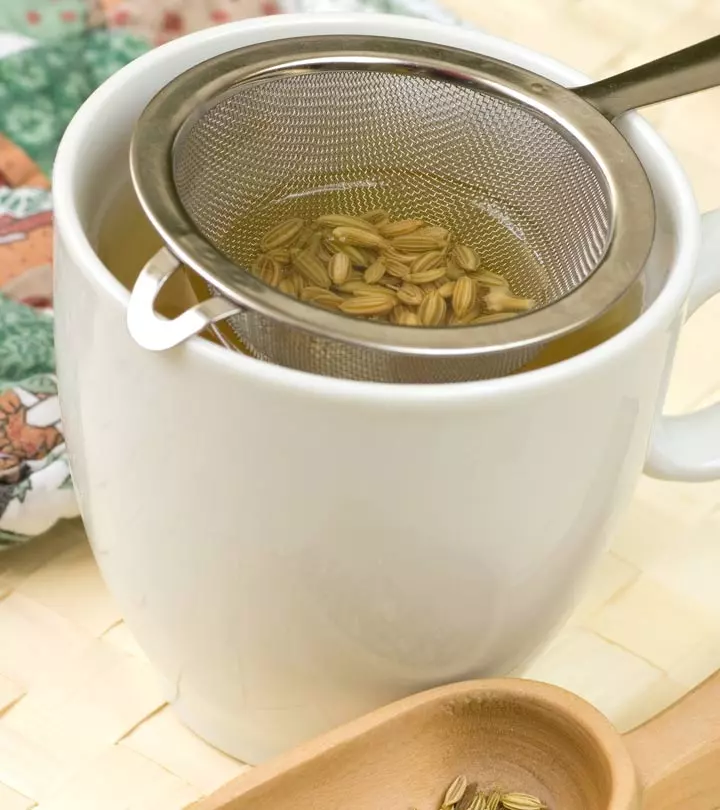
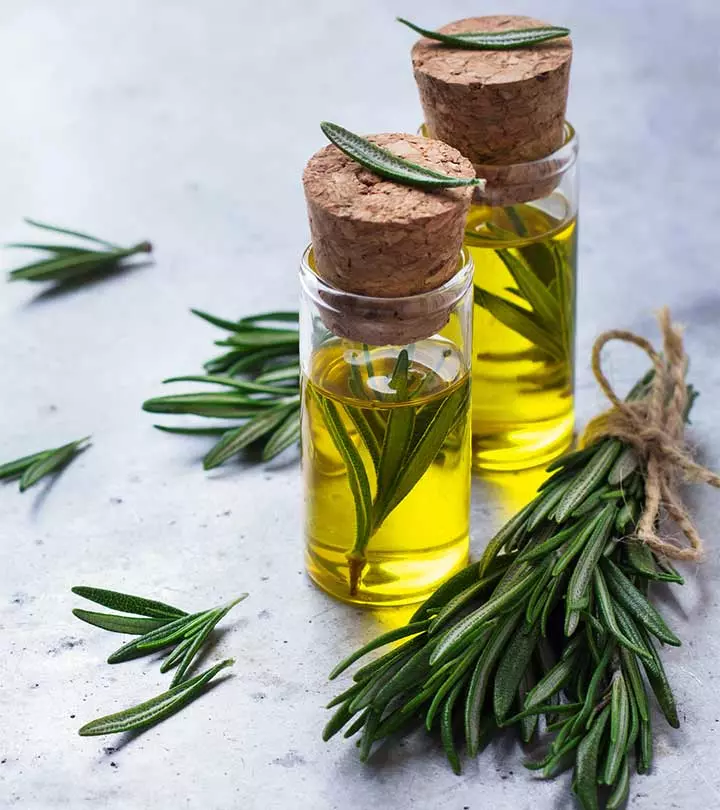

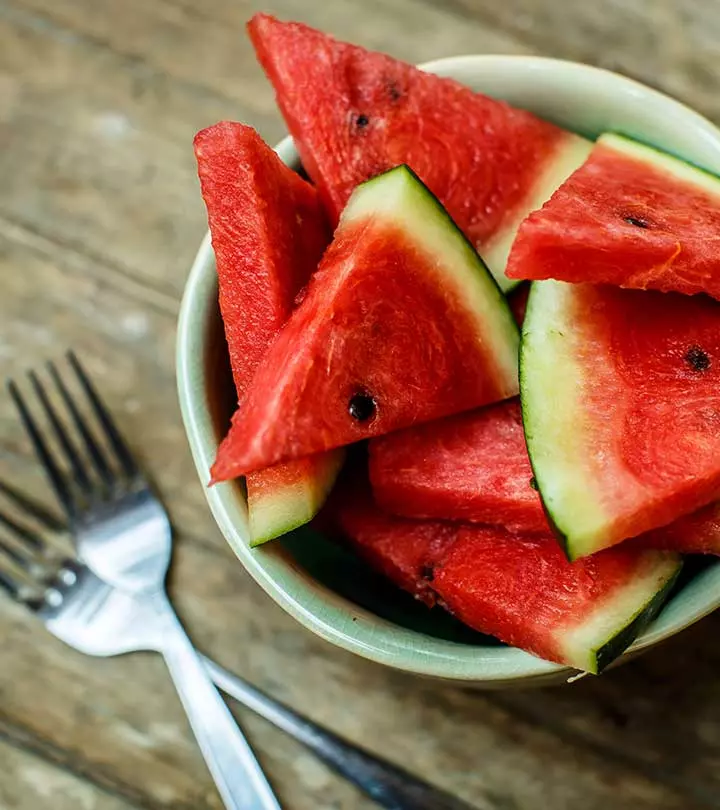
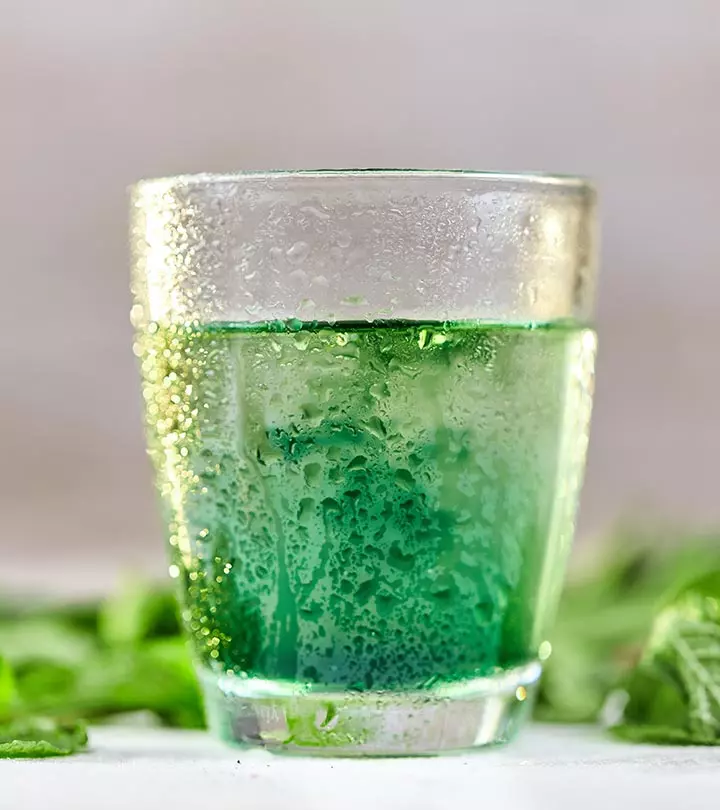
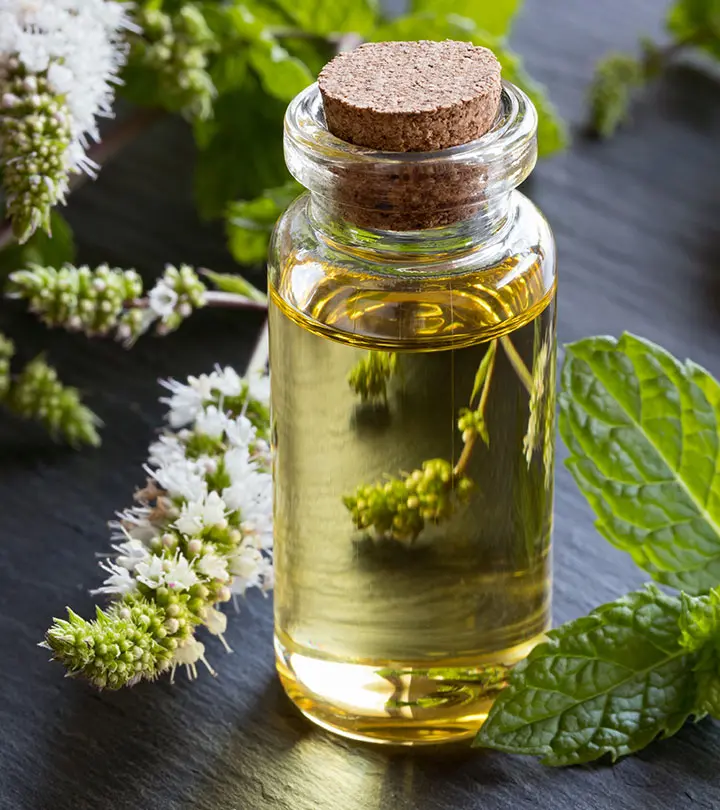

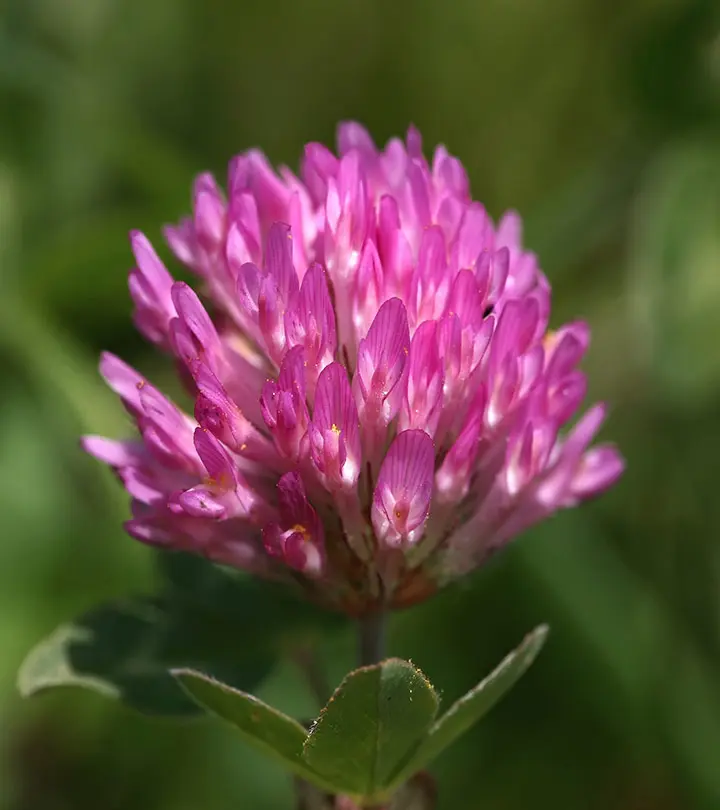

Community Experiences
Join the conversation and become a part of our empowering community! Share your stories, experiences, and insights to connect with other beauty, lifestyle, and health enthusiasts.